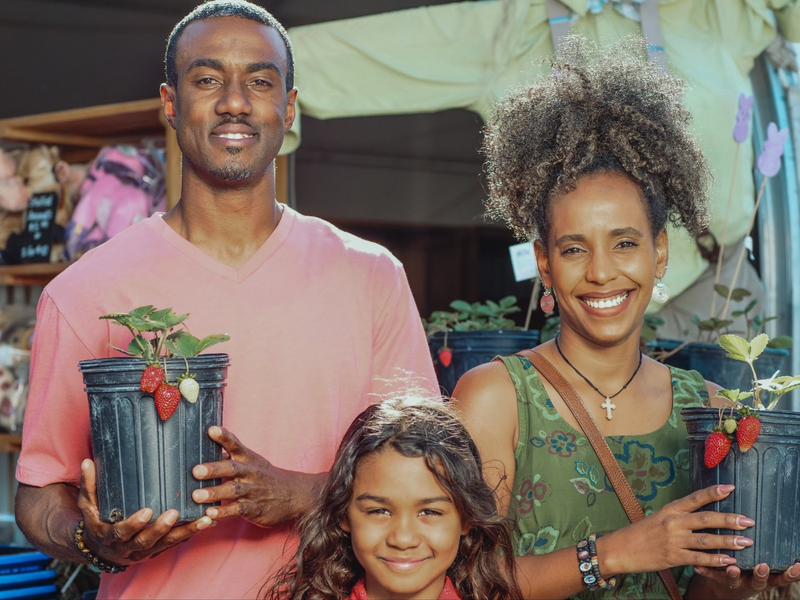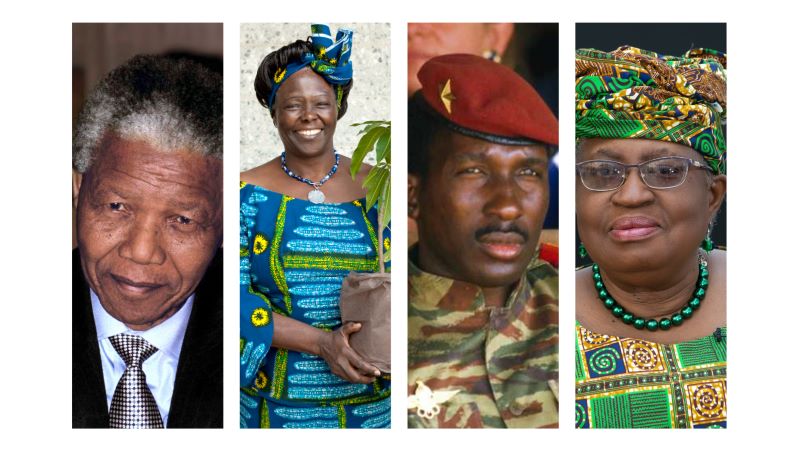(Image by Kindel Media via Pexel)
Poverty is a global issue that people may or may not associate with America, due to the country’s excellent marketing strategies in the international sphere. Poverty is described by the United Nations as a lack of income and productive resources to ensure sustainable livelihoods, characterized by hunger and malnutrition, limited access to education and other basic services, social discrimination, and exclusion, as well as the lack of participation in decision-making. The Urban Institute estimated that one in seven Americans would face poverty in 2021.
The coronavirus pandemic continues to exacerbate poverty in vulnerable communities. In response to the economic crisis happening in the country, in March of this year, President Joe Biden enacted The American Rescue Plan, which was designed to redeem America’s economy through supporting workers, reducing child poverty, and conquering COVID-19. As part of this initiative, the Child Tax Credit allotment has been increased, with an additional $1000 added for each child under 17, totaling to $3000 each year per child, and a supplementary $600 for children below 6 years old, from July 15th to December 15th.
The child tax credit has been touted as a ‘Magic Bullet’ to solve poverty. FunTimes consulted with citizens in Philadelphia, California, and Ohio, as well as leaders in non-profit and legislative sectors, to inquire about the impacts of the child tax credit, and to investigate if it indeed is a magic bullet. We also collated data from our global audience to gauge this issue.
We conducted an online survey, targeting families from Pennsylvania, Delaware, Maryland, and New York. We wanted to know their awareness of the child tax credit and its impact on their lives. Here are the responses we received:



The majority (90.9%) knew about the child tax credit while 9.1% were not aware. We also sought to know if these families had children under the age of 17 and identified that many of them did (81.8%). It was noticed too that some of the families that didn’t know about the child tax credit had no children under the age of 17. Additionally, we identified that most of the families filed their taxes except for 18.2%.


While 45.5. % of the survey participants did not receive the child tax credit, the 54.5% who did note that it had made a difference in their children’s lives.
The respondents added that more can be done to support families. One of them remarked, “This only can have the impact to lift children out of poverty if this was a long-term initiative. 6 months of 250-300 dollars will not meet those claims. While it’s helpful, it’s not realistic to think it is life-changing.” Another replied “Universal healthcare and a standardized income with a living wage” when asked for other ways that the government can assist families.
Some respondents expressed the need to help single parents and also families without children. Survey participants noted other factors to alleviate poverty may include more access to daycare and access to housing and jobs. This survey, however small-sized, could be indicative of a larger population.


(Francine Natal, Philadelphia entrepreneur)
Philadelphia is the poorest large urban city. In 2019, 23.3.% of the population lived in poverty, according to the US Census Bureau. Francine, an independent contractor, educator, internet podcast show host, poet & community helper in Philadelphia, says: “The child tax credit is a good start to ‘fix what’s broken’ regarding sustenance, afforded to families with children. It is also intentional government involvement to ‘break the cycle of poverty’ that has marred communities of residents in Philly, especially the inner-city.”
In describing whether she thinks the child tax credit can disrupt poverty, Francine says:
“The child tax credit has the potential to prevent a ‘cycle of poverty’ from generation to generation but whether it can eradicate poverty at large rests upon each individual and head of household. Each initial action, or response, from the head of household impacts finance and management of estate affairs, which manifests in one of two outcomes: financial bankruptcy or financial security. We must hold the heads of households accountable. The child tax credit should not be designated as a ‘quick fix’ to a social malady such as poverty. If elitism exists in America, actions to eradicate poverty become null and void. City politics e.g., politicians who have ‘special interests’ are biased, and they will promote more benefits towards the wealthy who donate substantial amounts of money to causes, events, and programs that benefit the city (tax breaks for the wealthy and tax increases for the poor).”
Francine notes other factors of poverty in Philadelphia: “Toxic Schools, including asbestos and persistent unsafe conditions, and poor quality housing, including old houses in need of maintenance, and hazardous materials such as lead paint, create unhealthy environments/living conditions. Gentrification, including a shortage of units for low-income renters and direct displacement, where residents can no longer afford to remain in their homes due to rising housing costs, and gun violence plague Philadelphian communities.
Fran highlights the importance of financial wellness:
“We as citizens of the Commonwealth of Pennsylvania must become better acclimated with doing better as financial stewards of our estates whether renters, homeowners, and or potential home buyers. Our actions must coincide with the status we aspire to reach. If financial security is our objective, then we must do more to affirm and or assert that financial security is our lifetime achievement goal and daily assert ourselves by doing what is necessary to fulfill it. Government funding and or assistance should not be the ‘go-to’ in regards to our planning and/or financial investing. We must learn the art of self-reliance and be more astute with regards to just doing it…being entrepreneurial in our business affairs. The less we rely upon government assistance the better we are at simply managing our own lives and making choices that are deliberate but wise in terms of financial stewardship.”

(Representative Joanna E. McClinton )
Representative Joanna E. McClinton has been serving Philadelphia’s 191st district since 2015. In describing persistent poverty-related issues in the 191st Legislative District of Philadelphia, she says:
“Beyond the borders of the district, our entire community is suffering. People are working harder than ever and for longer hours, but the wage hasn’t risen commensurate with the cost of living, and the wage has been left far behind by the pay of CEOs and the stock market. To truly address poverty and inequity we need to invest in our children as early as possible, we need to make sure the social safety net is strong and well-funded, and we need to give workers a raise.
Right now someone working TWO full-time minimum wage jobs wouldn’t be able to afford an apartment in Pennsylvania. COVID-19 didn’t create these inequities, but it stripped bare the façade covering up the problem. We also must address the other deadly pandemic taking lives – gun violence.”
Representative McClinton describes the impact of the Child Tax Credit on working families:
“Here’s the difference between handouts to the wealthy and investing in the community: when you give a rich person money, that money gets thrown on a pile somewhere in a tax shelter and does nothing. When you help out a working family, the power of that money is multiplied over and over and over again.
The money is spent in the community – the parents buy new clothes, the clothing store owner hires a new worker, the worker hires a plumber to fix up the house, the plumber goes to the local car dealer and buys a new van, the car dealer hires more mechanics. This is the power of investments like the Child Tax Credit.
Countless people have been talking about how they’re investing the money from the Child Tax Credit into making the lives of their children better so those kids can focus at school and worry about being kids, not about their family’s finances.”
On whether she thinks the Child Tax Credit has the power to lift people out of poverty, Representative McClinton says:
“An extra $300 a month per child in people’s pockets can make all the difference in the world. It can keep food on the table. It can keep a roof over their heads. It can keep the lights and heat on in the winter.
Knowing that money is there every month – without tons of red tape to cut through to get it in people’s pockets – is a tremendous asset to the community. I hope the credit will be made permanent through President Biden’s American Families Plan, and I hope we can emulate this achievement on the state level.”
In discussing additional resources that can be leveraged to alleviate intergenerational poverty in the Greater Philadelphia area, Representative McClinton says:
“Right now there is more than $7 BILLION – with a “b” – in budget surplus and federal stimulus money that should be doing good in the community but is instead locked up in a government vault for a ‘rainy day.’ What storm could hurt us more than COVID-19 already has? What storm could hit us harder than Ida’s massive flooding? What storm could hurt us more than the challenges we face now?
We need to get that money out of the vault and into the community. We need to invest in cleaning up toxic schools. We need to get our front-line health care heroes a long-overdue raise – and get them more help on the job by encouraging medical education. We need to invest in workers and the truly small community businesses.”
Representative McClinton also adds: “Please – mask up when you’re indoors and get vaccinated as soon as you are eligible. Our biggest challenge right now is defeating COVID-19, and using the tools we have is the way we save lives and keep schools and businesses open.”

(Chase Flow, California-based artist, DJ, and record producer )
The US Census Bureau reported that California was the state that has the highest poverty index, at 15.4%. Chase Flow, a California-based international artist, DJ, and record producer, gives his opinion on the Child Tax Credit:
“I believe an increase is good as it should help those who get it because child care and expenses for children are a lot. With the inflation in America and the closure of businesses due to the pandemic, it is a great way to catch up on some things.”
Chase does not believe the Child Tax Credit will be able to lift people out of poverty. He cites his reasons:
“Eradicating poverty initially ends with the mind: you know better, do better. Giving someone extra without a plan to utilize those funds towards a great cause will only continue the cycle of this economy, which is to spend more and work more.”
In describing persistent poverty-related issues in California, Chase says:
“Major expenses in California include the cost of living, the state taxes, and the individuals that drive the economy up. Being a resident in the state, the cost of living in California is very demanding. To maintain a comfortable lifestyle, you would have to make 3-4 times the rent. There should be more education in economics to help empower people into having better sustainable futures for themselves and families.”

(Image by Ksenia Chernaya via Pexel )
United Way is an international organization that empowers communities with access to financial, education, and health resources. Cheryl Mackey, the lead of Financial Empowerment at United Way of Greater Philadelphia and Southern New Jersey, describes the necessity and importance of the current Child Tax Credit initiative:
“In this day and time, I think the child tax credit is necessary and important. When we think about childhood poverty and poverty overall, the issues people face are not having enough financial resources to meet their needs to pay bills, buy food and have extra so that they can save for emergencies. Giving families with children that extra money, and it being for all families with children, not just the ones who qualify, has the potential to help families out of poverty. The Child Tax Credit, however, is not the only or final solution.”
Cheryl stresses the importance of financial literacy to discourage poverty: “How then do we help people to gain and maintain wealth? One thing I would love to see happen is more financial literacy for communities that don’t normally receive them, information about homeownership, making match savings programs more accessible so people can save to buy a house. Homeownership has been kept from Blacks for centuries.
We also need more resources for people with less than favorable banking history to have bank accounts so they can save and have interest on their savings, and other resources such as increasing incentives for first-time homeownership, loans for first-time businesses to be more accessible, and making post-secondary education more affordable.”

(Angela Denallo )
In 2019, advocates for Ohio found that 6 out of 10 jobs in Ohio left families earning under the 130% Federal Poverty Line, and in need of food aid, Medicaid, or cash assistance. Angela Denallo, an Ohio resident, gives her opinion on the Child Tax Credit:
“I do think that the Child Tax Credit can relieve poverty in some instances. It’s incredibly helpful to have it broken down month by month. In many instances, I can see where this would not be enough to alleviate all the poverty across America, and all the various ways in which our society and our laws keep people from getting where they need to be, out of poverty and into some form of consistent economic standing.”
In discussing socio-economic issues in Northeast Ohio, Angela says “We certainly have the same kind of systemic issues of food insecurity, housing insecurity, and that gap between where America deems as the poverty level and the actual poverty level in the ability to obtain housing, food, and consistent work and maintain savings an attainable goal, and that financial security.”
In noting the disparity between resources allocated and cost of living in terms of poverty, Angela says: “Something that our mainstream politics really quite misses is the gap between the amount of help that has been given by the government in terms of SNAP benefits, Section 8 housing, early childhood education, and functional poverty and the cost of living, and the cost of food and the cost of having somewhere for your kid to go when you have to work that second or third job. Ideally this Child Tax Credit alleviates a bit of that. I guess we’ll see how far it goes.”
All of the interviewees agree that the Child Tax Credit is a beneficial initiative. Most agree that financial literacy is an integral part of eradicating generational cycles of poverty, and that there are additional resources needed to lift people out of poverty. United Way hosts match-savings programs for homebuyers and students in the various states where they operate. Learn more about United Way of Greater Philadelphia and Southern New Jersey’s programs here.
Works Cited
https://www.un.org/development/desa/socialperspectiveondevelopment/issues/poverty-eradication.html
https://www.cnbc.com/2021/08/25/child-tax-credit-lifted-3-million-kids-from-poverty-in-july.html
https://www.cwla.org/the-impact-of-gun-violence-on-children-families-communities/
https://www.census.gov/content/dam/Census/library/publications/2021/demo/p60-275.pdf
https://www.advocatesforohio.org/news/2021
https://www.census.gov/data/tables/2021/demo/income-poverty/p60-273.html
https://economyleague.org/providing-insight/leadingindicators/2020/12/16/phlpov19

Nana Ama Addo is a writer, multimedia strategist, film director, and storytelling artist. She graduated with a BA in Africana Studies from the College of Wooster, and has studied at the University of Ghana and Kwame Nkrumah University of Science and Technology. Nana Ama tells stories of entrepreneurship and Ghana repatriation at her brand, Asiedua’s Imprint ( www.asieduasimprint.com ).

Uju Nwagu is a social media manager and content creator at FunTimes Magazine. She is also in charge of creating comics along with producing videos and other materials used for content marketing. Uju currently resides in Lagos, Nigeria. She has a Master’s degree in Human Nutrition from the University of Ibadan. Her passion is music. She is a faithful chorister, belonging to a few choral groups (her alumni group inclusive).You can connect with her on Instagram @juby_lindas.





